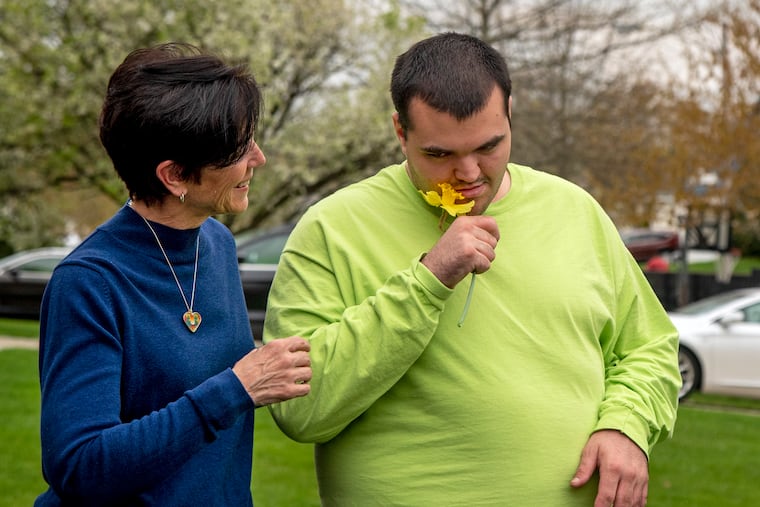Special needs advocates worry about the fate of a N.J. bill to extend services for students who have turned 21
Special needs advocates are calling on Gov. Phil Murphy to sign a bill that would give students aging out more time in school to make up for what they missed during the pandemic.

Special needs advocates are worried about the status of a bill that would extend services for hundreds of New Jersey students who suffered learning loss because of the pandemic and will age out at the end of the school year.
They believe the bill, passed overwhelmingly by the state Legislature last Thursday, appears to have stalled on the desk of Gov. Phil Murphy. At issue is the estimated $11.1 million price tag, they say. The state could use federal stimulus money, but is considering other plans for those funds.
» READ MORE: N.J. advocates are seeking extended services for special-ed students who missed school because of the pandemic
At his COVID-19 briefing on Wednesday, as has been his practice, Murphy declined to comment on pending legislation, saying only that he had “enormous sympathy with the challenge in the most vulnerable communities that have been crushed by this pandemic,” he said.
In a statement Thursday, State Sen. Dawn Addiego (D., Burlington), the bill’s primary sponsor, expressed surprise that an internal debate has ensued over funding the program. She deemed it “unwarranted and unnecessary at best.”
“This bill is about recognizing that these children matter, and that in the face of COVID-19 they are given the chance they deserve to reach their potential. The clock is ticking on these kids’ futures,” Addiego said.
Advocates had hoped the bill would quickly become law. Students who have reached 21 are no longer eligible for services after June 30 without the bill. Districts are already developing learning plans for the 2021-2022 school year and parents are unsure whether their children will continue with school or need to look for jobs or other programs to start in a few weeks.
“The parents are extremely concerned that the year is coming to an end and this has not been resolved,” Eric Eberman, public policy director for Autism New Jersey, said Thursday. “They’re in limbo right now.”
If adopted, the bill would extend services for students with disabilities through the 2022-23 school year. Advocates say special education students have been especially hurt by learning loss during the pandemic and need a chance to make up for time missed.
“This is a very vulnerable group of students,” said Elizabeth Athos, an attorney with the Education Law Center in Newark, an advocacy group. “It’s very disturbing that it hasn’t happened more quickly.”
Between 600 and 700 of New Jersey’s 1.3 million public school students could be affected, said Mercedes Witowsky, executive director of the New Jersey Council on Developmental Disabilities. Not all students are expected to participate in additional learning and districts make the final decision with parents.
“Right now, we are in a holding pattern,” Witowsky said.
Currently, public school districts must provide students with disabilities with an education based on an Individualized Education Plan or IEP through the school year that they reach age 21. The bill calls for using federal stimulus funds to pay for extra time, with the state picking up any remaining costs
Some parents like Laura Colnes, of Marlton, have decided against allowing their children to graduate to keep their legal options open. Her son, Sammy, who has autism, recently turned 21, but she believes he needs more time in school. As part of his vocation, he landed an internship two weeks ago that would end at the end of the month.
“I don’t understand how you say no to special education,” said Colnes, who flooded lawmakers with letters and testified at a hearing about the bill. “It’s shameful.”
Colnes, a seventh-grade teacher, said her son, who attends the Bancroft School in Mount Laurel, is scheduled to graduate Tuesday. However, she will not allow him to accept a diploma and instead will fight to keep him in school longer.
Students with disabilities typically participate in adult services transition programs during their last three years of school. They learn life skills and get job training. Most of those services were halted or limited for more than a year when schools shifted to remote learning because of the pandemic. They missed out on therapy and in-person community-based instruction that includes job sampling and travel training,
» READ MORE: Clayton model adopted around N.J. to help students cope with social and emotional needs